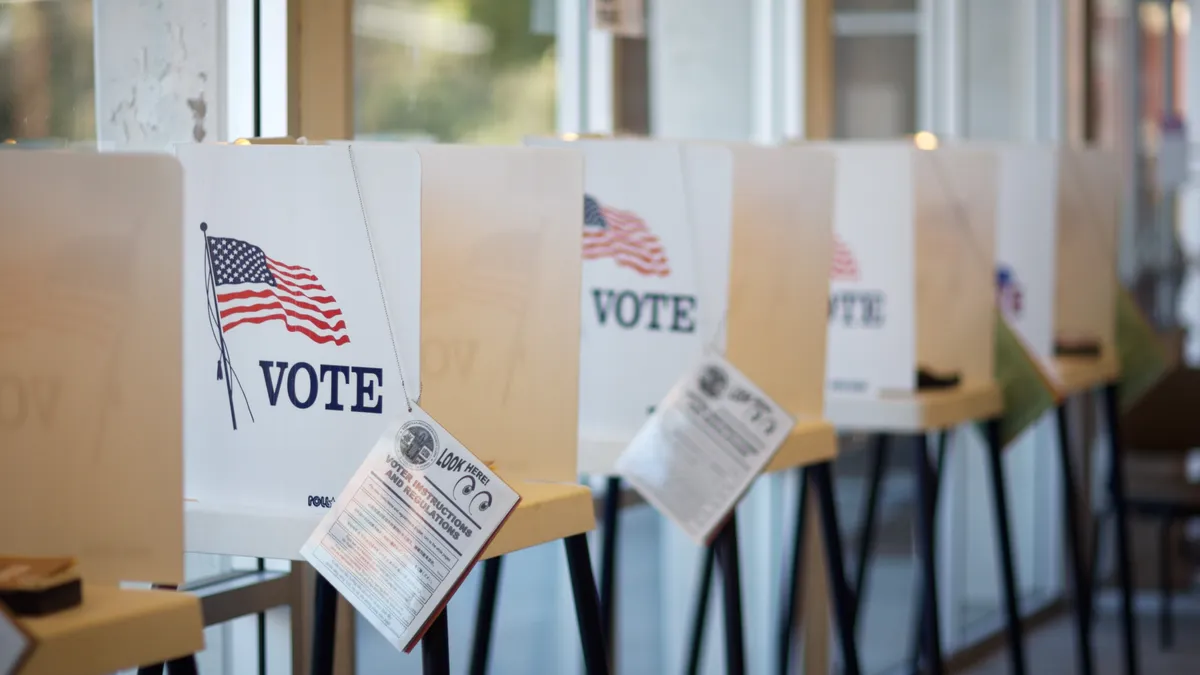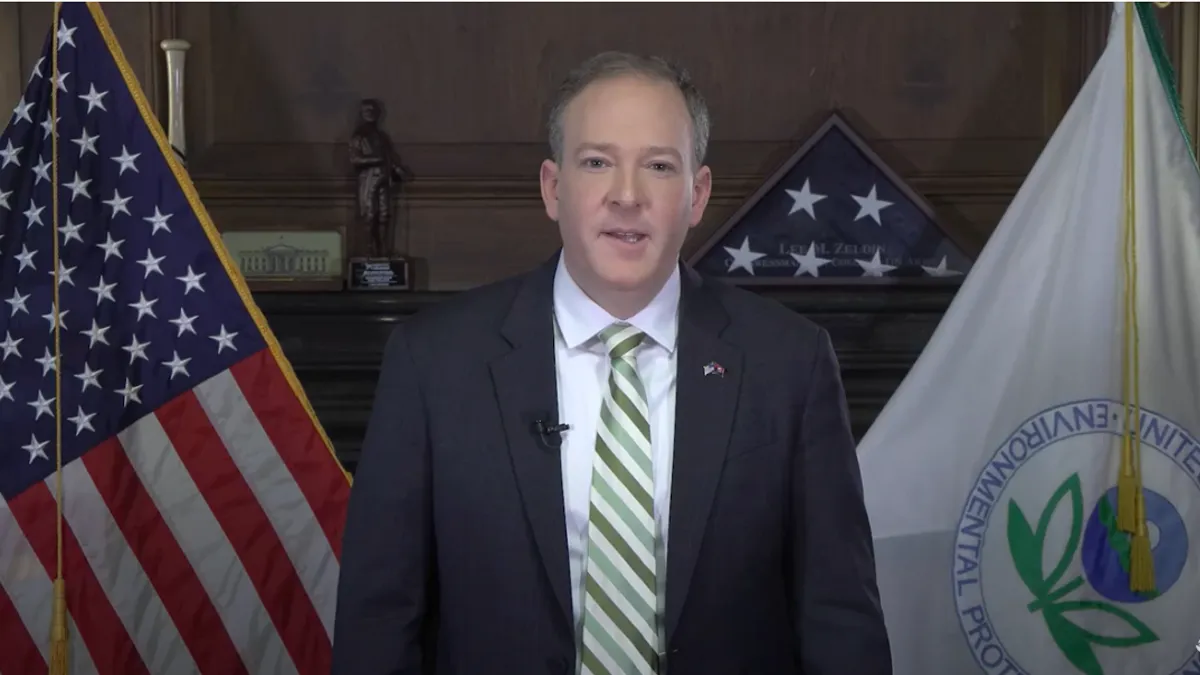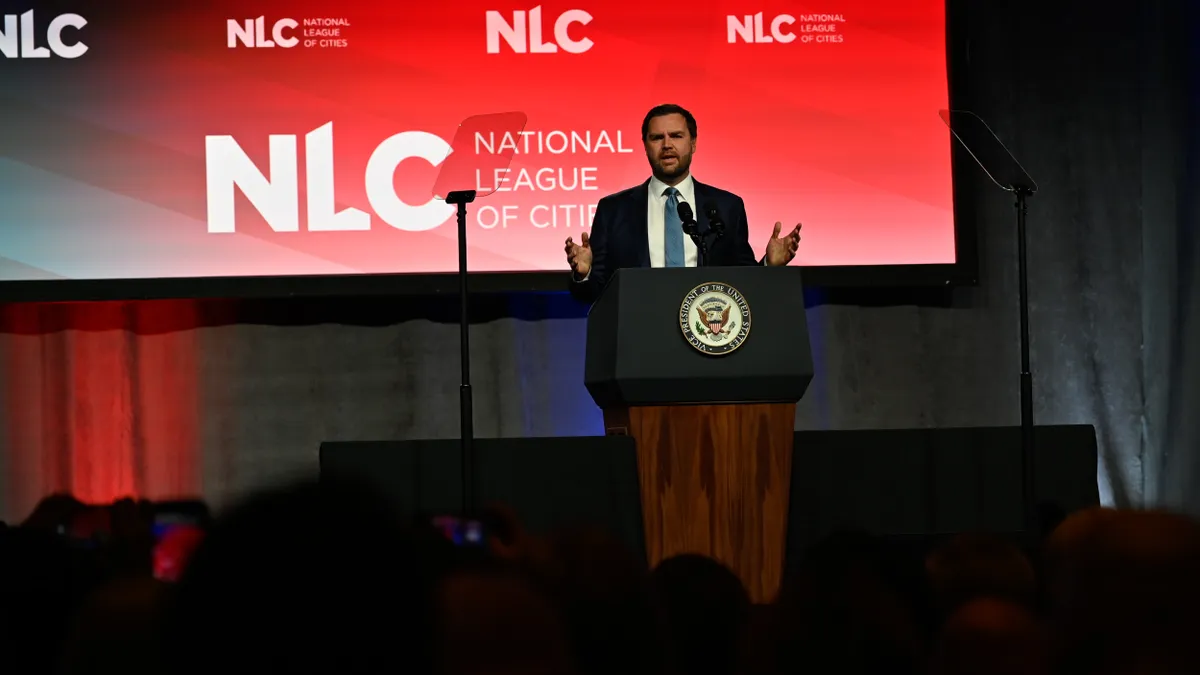Among all the hyped Congressional races in the Nov. 6 midterm elections are more than 150 state ballot measures, many of which relate to smart city agendas. Smart Cities Dive has identified 15 ballot initiatives that hold implications for cities, both within the states where they're up for a vote and externally as possible precedent-setting measures.
Which ballot measures are you keeping an eye on? Let us know at [email protected]
Arizona Proposition 127: Renewable Energy Standards Initiative
This constitutional amendment would require nongovernmental electric utilities to acquire a certain percentage of energy from renewable sources each year, increasing to 50% by 2030. If it doesn't pass, the state's existing renewable energy standards of 15% by 2025 will remain.
California Proposition 1: Housing Programs and Veterans' Loan Bonds
Passage would allot $4 billion in general obligation bonds for housing-related programs, projects, loans and grants for veterans. Portions of the funding would be distributed to affordable housing and housing projects near transit stations.
California Proposition 6: Voter Approval for Future Gas and Vehicle Taxes and 2017 Tax Repeal Initiative
This constitutional amendment would repeal gas tax increases and vehicle fees that went into effect last year and would require voter approval to impose or increase gas taxes and vehicle fees in the future.
California Proposition 10: Local Rent Control Initiative
This measure would repeal the Costa-Hawkins Rental Housing Act and allow local governments to adopt ordinances to enact rent control on any type of rental property. If it doesn't pass, the act stays in place and local governments cannot dictate whether landlords can raise rents on certain types of property including condominiums and townhouses.
Colorado Proposition 109: "Fix Our Damn Roads" Transportation Bond Initiative
This initiative would authorize $3.5 billion in bonds to fund statewide transportation projects such as road and bridge expansion, construction and repairs, but not transit or administrative costs. It also would require the state to repay the debt from the general fund without raising taxes.
Colorado Proposition 110: "Let's Go Colorado" Transportation Bond and Sales Tax Increase Initiative
Passage would authorize $6 billion in bonds to fund transportation projects including highway construction and maintenance, mass transit and bike and pedestrian paths, and it would create the Transportation Revenue Anticipation Notes Citizen Oversight Committee. It would also raise the sales tax rate by 0.62% to repay the bonds, from the current 2.9% to 3.52% for 20 years, starting Jan. 1.
Georgia Amendment 1: Portion of Revenue from Outdoor Recreation Equipment Sales Tax Dedicated to Land Conservation Fund Amendment
This constitutional amendment would allow the state legislature to dedicate up to 80% of revenue from the sales and use tax collected by sporting goods stores to the Georgia Outdoor Stewardship Trust Fund to support land conservation.
Maine Question 3: Transportation Bond Issue
This measure authorizes $106 million in general obligation bonds for transportation infrastructure projects, including highway and bridge construction and rehabilitation, waterfront pier improvements and equipment and facilities for ports, harbors, airports, railroads, transit, and bike and pedestrian trails.
Missouri Proposition D: Gas Tax Increase, Olympic Prize Tax Exemption and Traffic Reduction Fund Measure
This measure would increase the gas tax on gasoline, diesel, natural gas and propane 10 cents per gallon; exempt prizes for Olympics, Special Olympics and Paralympics from state taxes; and create a dedicated fund for certain road projects to reduce traffic bottlenecks that affect freight and goods distribution.
Nevada Question 3: Changes to Energy Market and Prohibit State-Sanctioned Electric-Generation Monopolies Amendment
Passage would establish an open and competitive electric energy market, prohibit the state from allowing electrical-generation monopolies and protect against unfair practices and service disconnections. The measure also would ensure that individuals, businesses and subdivisions can choose their electric utility provider and cannot be forced to purchase service from one provider.
Nevada Question 6: Renewable Energy Standards Initiative
The initiative would require electric utilities (EVs) to use incrementally larger percentages of renewable sources for energy, reaching 50% by 2030.
North Dakota Measure 3: Marijuana Legalization and Automatic Expungement Initiative
Passage would legalize the recreational use of marijuana by people 21 years of age and older. It would also create an automatic expungement process for people convicted of crimes related to controlled substances that have since been legalized.
Oregon Measure 102: Removes Restriction that Affordable Housing Projects Funded by Municipal Bonds be Government Owned
A constitutional amendment that would allow local governments to use bond revenue to finance affordable housing even if the project is not fully owned by a governmental entity. Local voters would have to approve the bonds.
Rhode Island Question 3: Environment, Recreation and Water Infrastructure Bond Measure
The measure would authorize $47.3 million in bonds for environmental, water and recreation projects, including wastewater treatment, brownfield remediation and restoring and improving the resiliency of coastal habitats.
Washington Initiative 1631: Carbon Emissions Fee Measure
This initiative would put in place a carbon emissions fee of $15 per metric ton of carbon starting on Jan. 1, 2020; increase the fee by $2 each year until the state reaches its greenhouse gas reduction goals; and use revenue from the fee to fund environmental programs and projects.




















